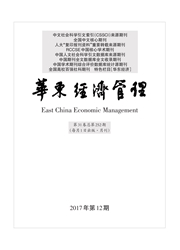

 中文摘要:
中文摘要:
文章建立理论模型探究公司特质风险、估值水平与股票收益之间的关系,理论模型结果表明:对于被低估的公司,特质风险的私有信息效应更加明显,股票预期收益率与特质风险之间呈正相关关系;对于被高估的公司,特质风险的噪声交易效应更加明显,股票预期收益率与特质风险之间呈负相关关系。在此基础上,从公司估值水平和卖空限制的角度对整体市场的特质波动率之谜进行了理论解释。文章使用Fama-French五因子模型计算特质风险和估值水平,运用分组检验和分位数Fama-MacBeth回归两种方法进行实证分析,基于我国上市公司数据的实证研究结果支持了理论模型的结论:中国股票市场存在明显的特质波动率之谜,公司估值水平会对特质风险与股票预期回报之间的关系产生影响。
 英文摘要:
英文摘要:
This paper builds a theoretical model to explore the relationship among idiosyncratic volatility, valuation level and stock re- turns, the conclusions of the theoretical model indicate: The IVOL-return relation is positive among underpriced stocks because idiosyn- cratic volatility mainly represents firm' s idiosyncratic information; Whereas the IVOL-return relation is negative among overpriced stocks because idiosyncratic volatility mainly represents the behavior of noise traders. Then we present a theoretical interpretation of the whole market' s IVOL puzzle from the perspective of valuation level and short sale constraints. We use Fama-French five-factor model to esti- mate the idiosyncratie volatility and the valuation level, apply portfolio sorting method and quantile Fama-MacBeth regression model for the empirical test. The empirical analysis results based on China listed companies support the conclusions of the theoretical model: The IVOL puzzle of Chinese stock market is robust, and the valuation level of a company will influence the relationship between idiosyncratic volatility and stock returns.
 同期刊论文项目
同期刊论文项目
 同项目期刊论文
同项目期刊论文
 期刊信息
期刊信息
